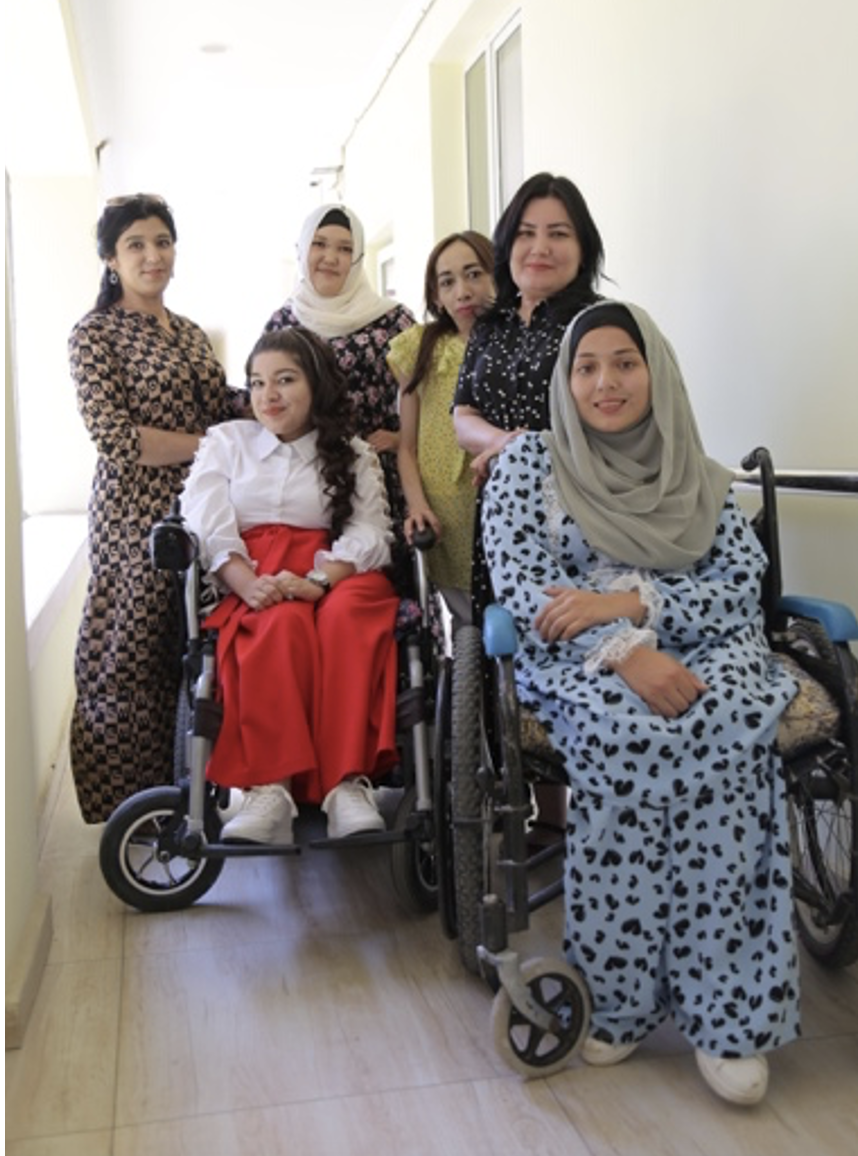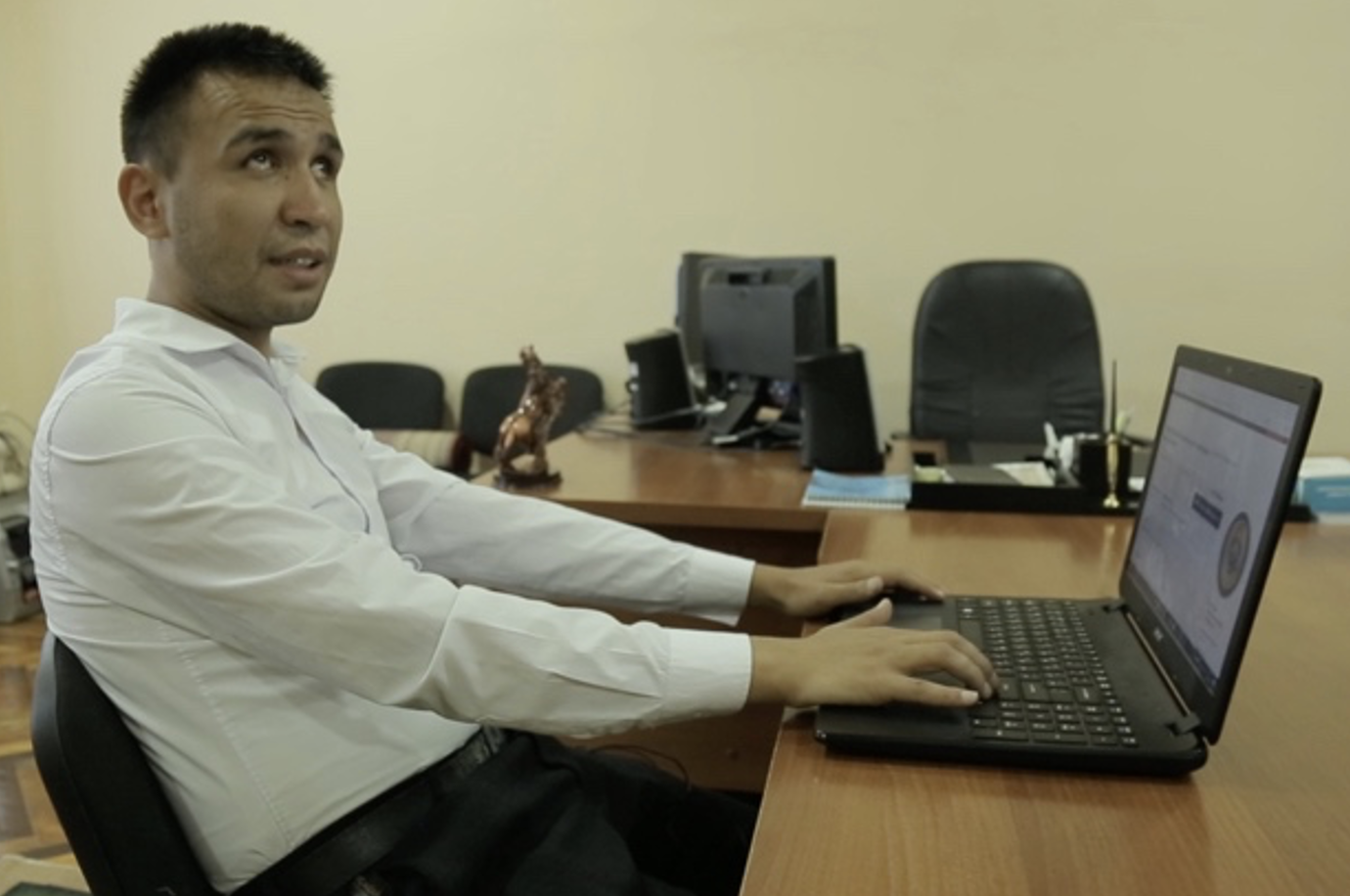“When a person, especially [someone] with disability, has no job, they can easily succumb to depression and lose their confidence”. -Nodira Tillayeva chairperson of the Inclusive Society NGO.
Often people with disabilities are viewed as a minority, as a separate world. Disability makes people particularly vulnerable to number of risks: socio-economic disadvantages, health and other.

COVID-19 pandemic exposed the vulnerabilities of the organizations of people with disabilities. For example, the lack of consistent and sufficient funding to implement their activities. It means PwD may not receive this important support.
To address this gap, the UN Joint Programme on Social Protection sought to help organizations of people with disabilities through small grants. UNDP, as an implementing agency, received around 40 applications. The UN funding, US$ 54,000 total, supported projects expanding the access of people with disabilities to services and initiatives, ensuring their inclusion in different aspects of public life, as well as implementing innovative approaches to social protection with focus on women and young people with disabilities in the context of COVID-19.
The organizations of people with disabilities and NGO:
- Opened the first inclusive kid’s art workshop by Republican Center for Social Adaptation of Children with children with disabilities engage in different activities in rehabilitation purposes.
- Launched the first inclusive recruiting web portal for people with disabilities (www.ishplus.uz) by the Public Association of Disabled Persons in Tashkent “SHAROIT PLUS”. Today the portal has 470 users, 393 vacancies, 12 training courses and during project’s lifetime 30 persons with disabilities have been employed.
- Trained a group of 15 young people with disabilities in psychology, basics of law, confectionery, toys-making and manicure by the Kibray district society of women with disabilities "Opa-singillar".
- Creating 7 social and educational videos about children with hearing impairments by “Zamin” International Public Foundation that were broadcast by national tv channels, social media and blogger community to contribute to a sustainable understanding that THEY are WE.
- Developed mobile applications to ease communication between mahalla representatives and people with disabilities (by "MILLENNIUM" Youth social and legal rehabilitation center), and to improve legal awareness of PwD (by NGO "Center for Youth and Children with Disabilities" under the Central Council of the Youth Union of Uzbekistan).
- Trained of 524 handicraftsmen with disabilities among the members of the Hunarmand Association and 240 volunteers with disabilities, staff of the Entrepreneurship Support Centers, (by the Chamber of Commerce and Industry of Uzbekistan), and 20 young people with disabilities of 1st and 2nd group in accounting and computer literacy by Public Association of Disabled People “Inclusive Society”, and 94 people (50 women, 44 men) via online webinars and workshops (by the Association of the Uzbek graduates of the Russian Higher Educational Institutions).
- Published a poetry collection of the youth with disabilities (by the Republican Council of Creative Youth).

The grant recipients delivered some 4,400 training hours for 609 persons with disabilities, including young people and women with disabilities, and their parents. They focused on providing people with disabilities with decent knowledge, employment and skills.
The chairman of Kibray district society of women with disabilities "Opa-singillar", Natalya Plotnikova points out that “Besides the main goal, our initiative had additional objective viz, to get young with disabilities out of their homes, so that they get to know their peers, so that their life becomes more interesting with socialization. We also keep an eye on potential leaders that their leadership skills could contribute to the organization and help our society in the future.”
Ratification of UN CRPD, drafting a National Plan of Action for CRPD implementation, transitioning to social model of disability, addressing the issue of accessibility and inclusive spaces are just the beginning of a long and challenging path. They are all in the spirit of the Sustainable Development Goals: Poverty Eradication (Goal 1), Gender Equality (Goal 5), Reduced Inequalities (Goal 10), Peace, Justice and Strong Institutions (Goal 16), and the global initiative “Leave No One Behind”.



















